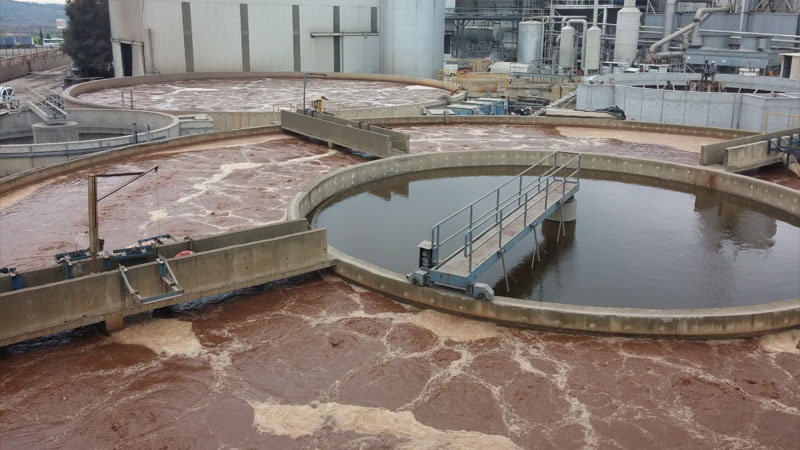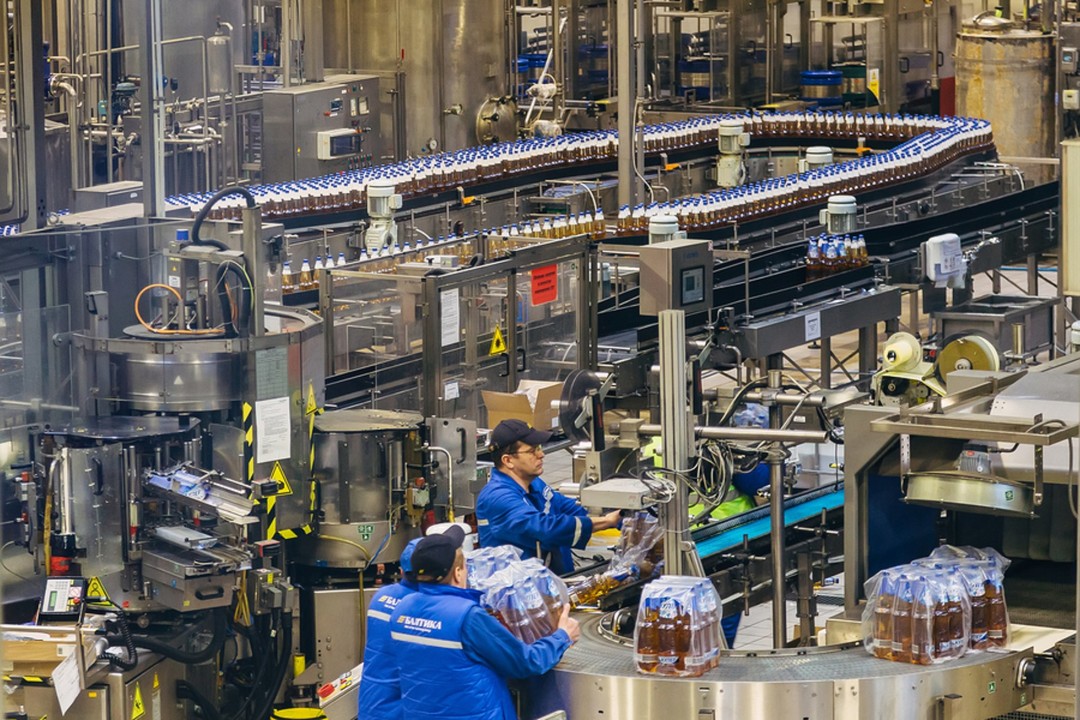
The food and beverage industry, especially beer and starch production, is one of the rapidly developing sectors. However, this production process also generates large amounts of wastewater, which can negatively impact the environment and human health if not properly treated.
1. Components in Food and Beverage Industry Wastewater
Wastewater from the food and beverage industry, particularly from beer and starch production, contains many organic substances and other chemicals. Some common components include:
- Organic substances: These include carbohydrates, proteins, and fats from raw materials. These substances can decompose quickly, causing odors and oxygen depletion in water sources.
- Suspended solids (SS): From residues of food materials, beer lees, and leftover starch in the production process.
- Nutrients: Nitrogen and phosphorus in wastewater from starch and beer production can cause eutrophication when discharged into rivers and lakes.
- Chemicals: These include detergents, additives, and stabilizers used during production and factory sanitation processes.
2. Environmental Harm of Food and Beverage Wastewater
Wastewater from beer and starch production causes several serious environmental problems, including:
- Water pollution: Wastewater containing large amounts of organic matter can deplete oxygen in receiving water bodies (a reduction in BOD – biochemical oxygen demand), leading to water quality degradation. This impacts the survival of aquatic organisms.
- Eutrophication: Wastewater from food production, especially starch and beer production, contains high levels of nutrients such as nitrogen and phosphorus, which can cause eutrophication in rivers and lakes. Eutrophication leads to excessive algae growth, reducing oxygen in water and causing massive die-offs of aquatic life.
- Accumulation of sludge and soil pollution: Suspended solids in wastewater, when absorbed into the soil, can block soil pores, reducing water infiltration and soil fertility. This directly affects crops and soil ecosystems.
3. Wastewater from Beer Production
The beer production process uses a large amount of water and generates significant amounts of wastewater containing many organic substances and residues. The negative impacts of beer wastewater include:
- Oxygen depletion in water: Wastewater from beer production contains many biodegradable organic substances, causing microorganisms in water to consume more oxygen to decompose these substances, leading to oxygen depletion, which negatively affects aquatic life.
- Odor generation: The organic substances in beer wastewater, when decomposed, produce unpleasant odors, which adversely affect the surrounding environment near the discharge point.
If you want to learn more about beer wastewater treatment solutions, check out the article: Beer Wastewater Treatment Solutions
4. Wastewater from Starch Production
Wastewater from starch production contains a high level of organic substances, particularly carbohydrates. The main issues include:
- Water pollution: The high level of carbohydrates in wastewater increases the BOD and COD (chemical oxygen demand), making the water body more vulnerable to degradation, affecting the ecosystem.
- Eutrophication: Due to the high levels of nitrogen and phosphorus, wastewater from starch production is also a cause of eutrophication, leading to algae blooms in water and the degradation of aquatic ecosystems.
If you want to learn more about starch wastewater treatment solutions, check out the article: Starch Wastewater Treatment Solutions
5. Harm to Human Health
In addition to its environmental impact, wastewater from the food and beverage industry can directly harm human health if not properly treated:
- Risk of infectious diseases: Untreated wastewater contains many harmful bacteria and microorganisms. Exposure to or use of contaminated water sources can lead to digestive and skin diseases.
- Impact on air quality: The decomposition of organic substances in wastewater can generate methane and hydrogen sulfide gases, causing foul odors and air pollution, which affect respiratory health.
- Food poisoning: When heavy metals and chemicals from food wastewater seep into irrigation water sources, they can enter the food chain, causing food poisoning and other health problems.
6. Corporate Responsibility in Wastewater Treatment
Companies in the food and beverage industry must take responsibility for treating wastewater before discharging it into the environment, specifically:
- Implement advanced wastewater treatment systems: Use methods such as biological treatment, membrane filtration, and disinfection to remove organic substances, suspended solids, and harmful chemicals.
- Closely monitor discharge processes: Companies need to regularly inspect and monitor wastewater quality, ensuring that treated wastewater meets environmental standards.
7. Benefits of Proper Wastewater Treatment in the Food and Beverage Industry
- Environmental and community protection: Proper wastewater treatment helps reduce environmental pollution, protects public health, and ensures clean water sources for daily use.
- Enhancing corporate reputation: Environmentally responsible companies gain trust from the community and partners, creating conditions for sustainable development.
- Reducing legal risks: Compliance with legal regulations helps companies avoid large fines and the risk of business suspension.
Conclusion
Wastewater from the food and beverage industry, particularly from beer and starch production, contains numerous pollutants that can cause severe harm to both the environment and human health. Implementing advanced food wastewater treatment solutions is essential to mitigate negative impacts, protect the environment, and maintain sustainable development.

 Tiếng Việt
Tiếng Việt





